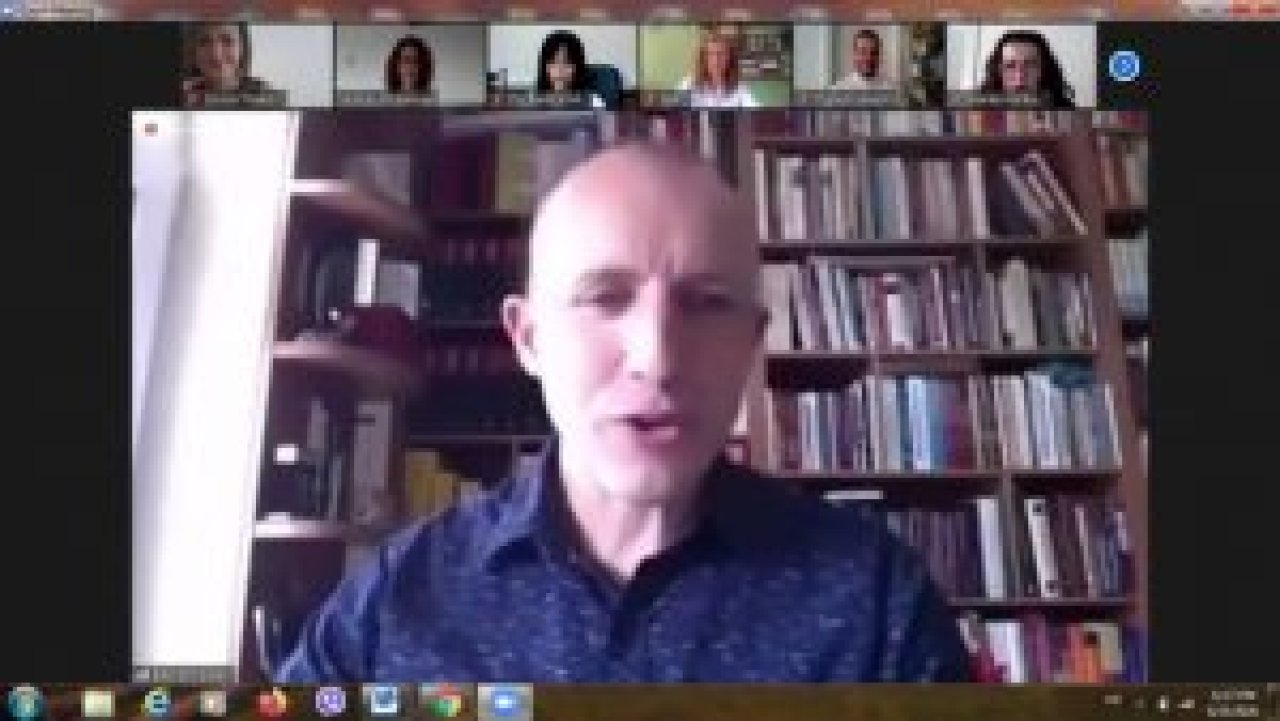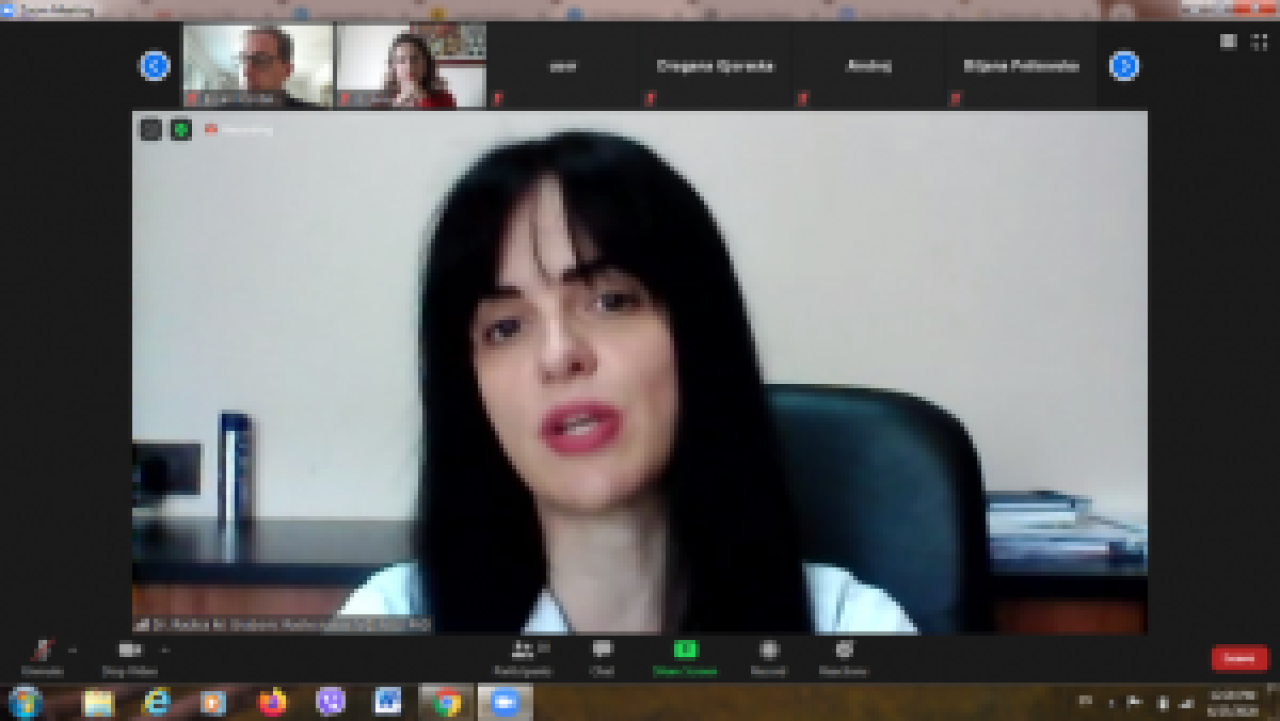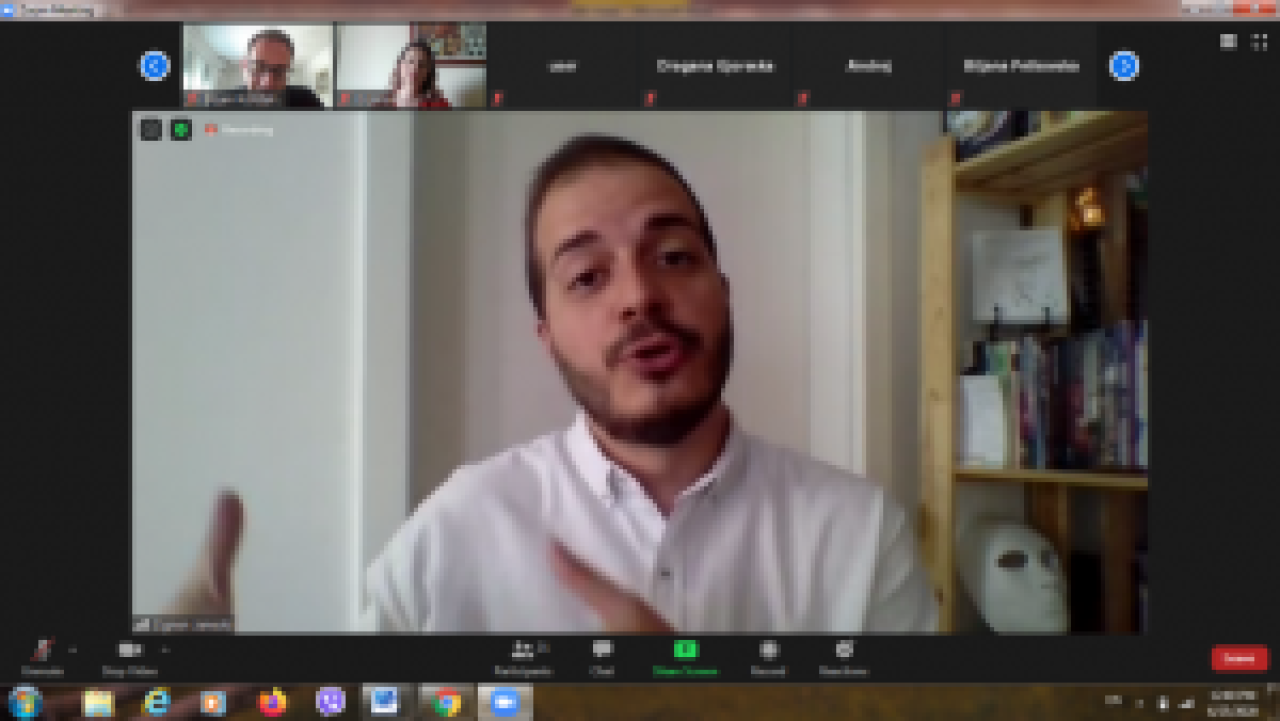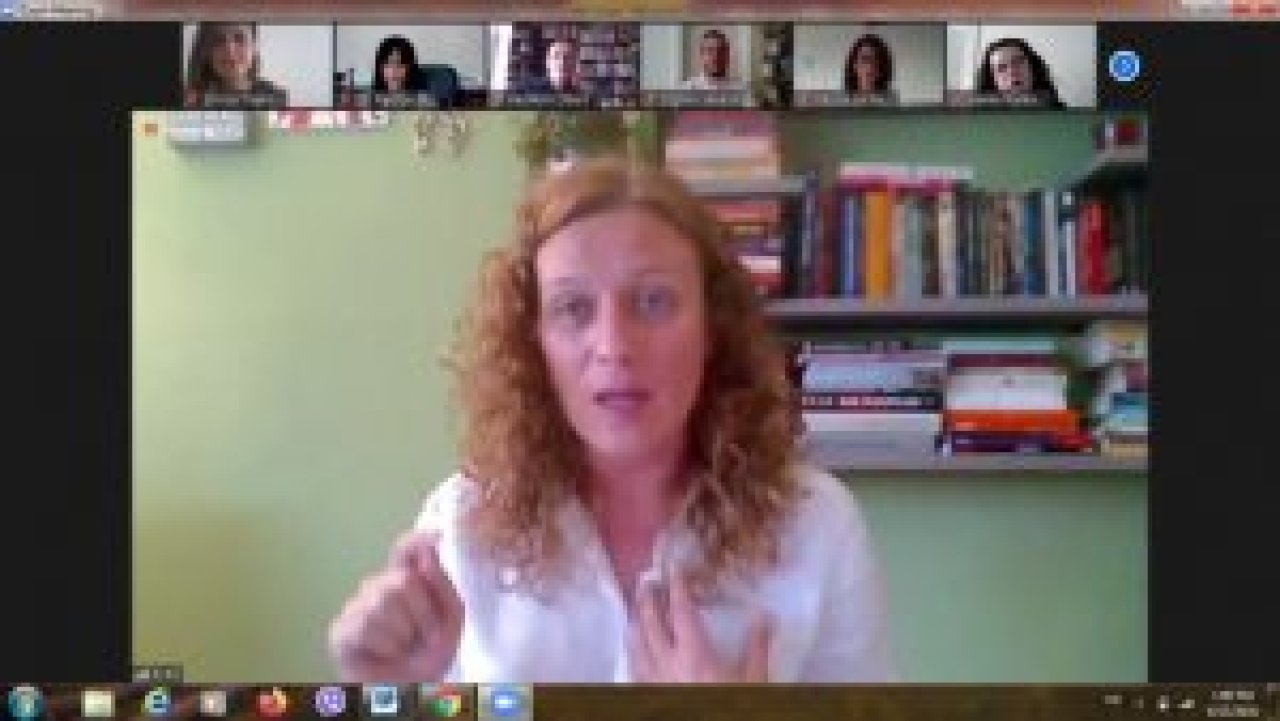
October 8th, 2020
The pandemic of fake news
In the last couple of months, people worldwide have been living and fighting with the Coronavirus pandemic. While scientists have been tirelessly trying to find a vaccine and a cure for the virus and countries have been taking drastic measures to protect public health, the pandemic of fake news has not seemed to slow down. North Macedonia has not been immune to this trend as well. The media have been flooded with false information, mainly connecting 5G technology with the virus, the origin of the virus as well as with its existence or non-existence.

On 25th June 2020, MAAA organized an online debate on this topic. There were four main panel speakers: Rosana Aleksova, an initiator of the project: Countering false narratives F2N2; Bashkim Ziberi, professor of physics and biophysics at the State University of Tetovo; Ognen Janeski, journalist at the national 24News TV and Radica Grubovikj- Rastvorceva, doctor at the Institute for Transfusion Medicine. They talked about the reason for the appearance of fake news, the consequences from them, their impact on the society and the individuals. In addition, the speakers discussed the (dis)connection between 5G technology and the virus. The panelists also clarified how fake news can easily be recognized, they explained the characteristics of the 5G technology and the misinformation which is spread about it, and they also talked about the real threat from the virus on the people’s personal health as well the health care system in general. The debate was moderated by the president of MAAA, Verica Jordanova.

According to the panelists, not only North Macedonia but the democracies around the world are facing this challenge on a daily basis too. They pointed out that the consequences and risks are multifaceted and must not be ignored. The fake news phenomenon must be analyzed in a broader context and the general public must be made aware of it. They also tried to make the attendees aware that there is misinformation connected to the 5G technology, not necessarily shared with the intent to mislead the citizens, but one that definitely confuses people and reduces their objectivity when making solid judgments. Consequently, as they said, this undermines the general trust in the social processes and institutions. In that sense, the people in North Macedonia have been exposed to different narratives connected with the Coronavirus, the 5G technology and many theories of conspiracy. The fake news “pandemic” also contributed to a general disbelief that the virus and the threat of it exists at all. That increased the health risk for the people and their beloved ones, and it posed tremendous risk on the national health care system too.

In addition, social media, like Facebook, contributed to the spread of false information, too. As a result, the health care system was and still is strongly attacked by the fake news that directly influences the manner in which healthcare workers are managing it. If those people who doubt that the virus exists are Covid-19 positive, they might ask for help or test late, so the process of their healing will consequently take longer and will be more complicated. Not to mention that they will easily spread the virus. The panelists explained that, from a scientific point of view, there is no connection between the Coronavirus and 5G technology since those are completely different phenomena.
According to the panelists, along with the journalists, the whole society bears responsibility for the spread of fake news and the fight against it. The public figures and the state officials are the ones who are mostly responsible. In that respect, it is important to bear in mind that the origin of the information is crucial when it comes to disseminating information. It is especially important to find out if the source is reliable and if there is an editorial board behind it or if there is anyone who takes responsibility for the information spread.

Thus, media literacy is extremely important. Both journalists and common people need to be cautious and check two to three sources before forming an opinion and sharing it publicly. This means that there is no need for quick decisions or overly emotional decisions. At the same time, it is of utmost importance that the information is transferred in a way that it is understandable for the audience so the risk of misinterpretation is minimized. The public must be informed in a timely and adequate fashion.
